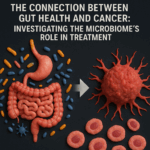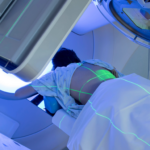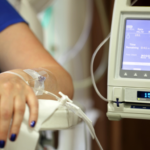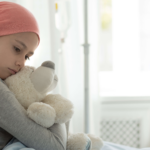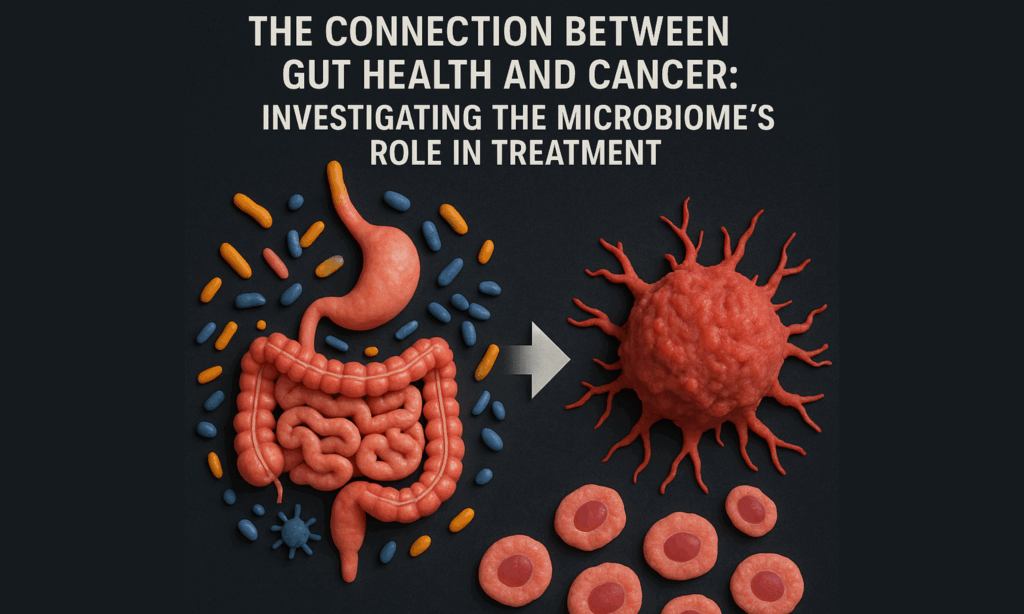
Recent studies have started to reveal a fascinating and intricate relationship between gut health and cancer. The microbiome, the enormous population of microorganisms living in our digestive tract, has been known for years to be involved in digestion, immune response, and general health. Its impact, though, goes far beyond these well-established roles. New research indicates that the microbiome is an important factor in cancer formation, treatment response, and even patient survival.
What is the Microbiome?
The microbiome is made up of trillions of viruses, fungi, and other microbes that live inside of us, predominantly in the gut.These microbes are essential for health, facilitating digestion, synthesizing vital nutrients, and supporting the immune system. An equilibrium microbiome maintains health, whereas imbalance, dysbiosis, can lead to several diseases, including cancer.
The Microbiome and Cancer Development
The interaction between the microbiome and cancer is complex and bidirectional.A diseased or unbalanced gut microbiome will have several roles in the formation of cancer:
Chronic Inflammation: Gut bacteria imbalance can result in chronic inflammation, which has been implicated in many cancers, especially colorectal cancer. Inflammation can induce DNA and tissue damage, providing a condition for cancer cell development.
Immune System Modulation: Microbiome is essential in the modulating of the immune system, affecting its operation as well as how it reacts to pathogens.. A deranged microbiome can impair immune This can weaken immune function, with the body less capable of detecting and destroying cancer cells.In other instances, a changed microbiome may even facilitate cancerous tumor development by inhibiting anti-tumor immune responses.
Carcinogen Metabolism: Some gut bacteria play a role in the metabolism of carcinogens from the diet. For instance, some bacteria can metabolize compounds present in red meat into chemicals that could enhance the risk of cancer. An imbalance of the microbiome could facilitate this chemical conversion, with the resulting increased likelihood of cancer.
The Microbiome’s Influence on Cancer Treatment
Aside from its involvement in the development of cancer, the microbiome is also the central player in determining the efficacy of treatments for cancer.Studies have established that the gut microbiome can modulate the effectiveness of cancer therapies, such as chemotherapy, immunotherapy, and radiation therapy. Here’s how:
Chemotherapy and the Micro biome: Chemotherapy is well recognized for its toxic side effects, which are many of them gut-related. The microbiome can influence how chemotherapy is tolerated by a patient, with some bacteria having the potential to make it less effective. Disrupted micro biome is likely to exacerbate side effects, potentially causing interruptions in treatment or decreased effectiveness.
Immunotherapy and Microbal Equilibrium: Immunotherapy, which enhances the body’s immune response to combat cancer, has proved to be successful in certain patients. The efficacy of immunotherapy, though, can be strongly affected by the microbiome. A well-balanced and healthy microbiome is capable of boosting the immune system’s power to identify and destroy cancer cells, thus enhancing the effectiveness of immunotherapy. An unbalanced microbiome, on the other hand, is capable of hindering treatment effectiveness.
Gut Health and Radiation Therapy: Like chemotherapy, radiation therapy can be harmful to the gut. An imbalance in the microbiome can exacerbate inflammation and damage, making radiation therapy less effective or even causing worse side effects. A balanced microbiome could help reduce some of these effects, enhancing treatment outcomes.
The Potential of Microbiome-Based Cancer Therapies
As the microbiome plays a key role in cancer, there is an increasing interest in microbiome therapies. These therapies strive to restore balance to the gut microbiome in order to improve the effectiveness of cancer therapy and reduce side effects. Some of the possible strategies are:
Probiotics: Dietary supplementation with probiotics, or beneficial bacteria, may restore a healthy microbiome and improve treatment outcomes.
Fecal Microbiota Transplantation (FMT) entails the transfer of healthy donor microbiota to a patient to re-establish a balanced and healthy microbiome.Preliminary studies indicate that FMT can improve the efficacy of immunotherapy in certain cancer patients.
Dietary Changes: Diet plays a significant role in the gut microbiome. Fiber-rich diets, including fruits, vegetables, and whole grains, can support a healthier microbiome and possibly enhance cancer treatment outcomes. On the other hand, fatty and sugary diets can disrupt the balance of the microbiome and, possibly, reduce the efficacy of cancer treatments.
Conclusion
The connection between gut health and cancer is a fascinating field of active research, with the microbiome playing a central role in both cancer initiation and treatment response. A healthy balance of microbiome might improve the effectiveness of cancer treatment, minimize side effects, and promote overall well-being. As we learn more about the gut’s multifaceted impact on cancer, future therapies aimed at the microbiome might transform cancer treatment, providing new means to prevent, treat, and control cancer more effectively.
For cancer patients, talking to health professionals about strategies to promote gut health, e.g., dietary means, probiotics, or other interventions, can become part of their treatment regimen.
Summary
The gut microbiome is also an important factor in cancer initiation and therapy. A disrupted microbiome has the potential to lead to chronic inflammation, impaired immune function, and carcinogen metabolism, ultimately boosting the risk of cancer. The microbiome also affects the therapeutic response to treatments such as chemotherapy, immunotherapy, and radiation therapy. The healthy microbiome can enhance the therapeutic response by strengthening the immune system and inhibiting adverse effects. Emerging treatments like probiotics, fecal microbiota transplantation (FMT), and changes in diet have potential in balancing the microbiome and enhancing cancer treatment.
Dr. Jagdish Shinde, an oncologist from the Cancer Care Clinic in PCMC, Pune, is expert in treating lung cancer and provides the latest radiation therapy. Early diagnosis and a specialist consultation at the right time can greatly enhance the outcome.
